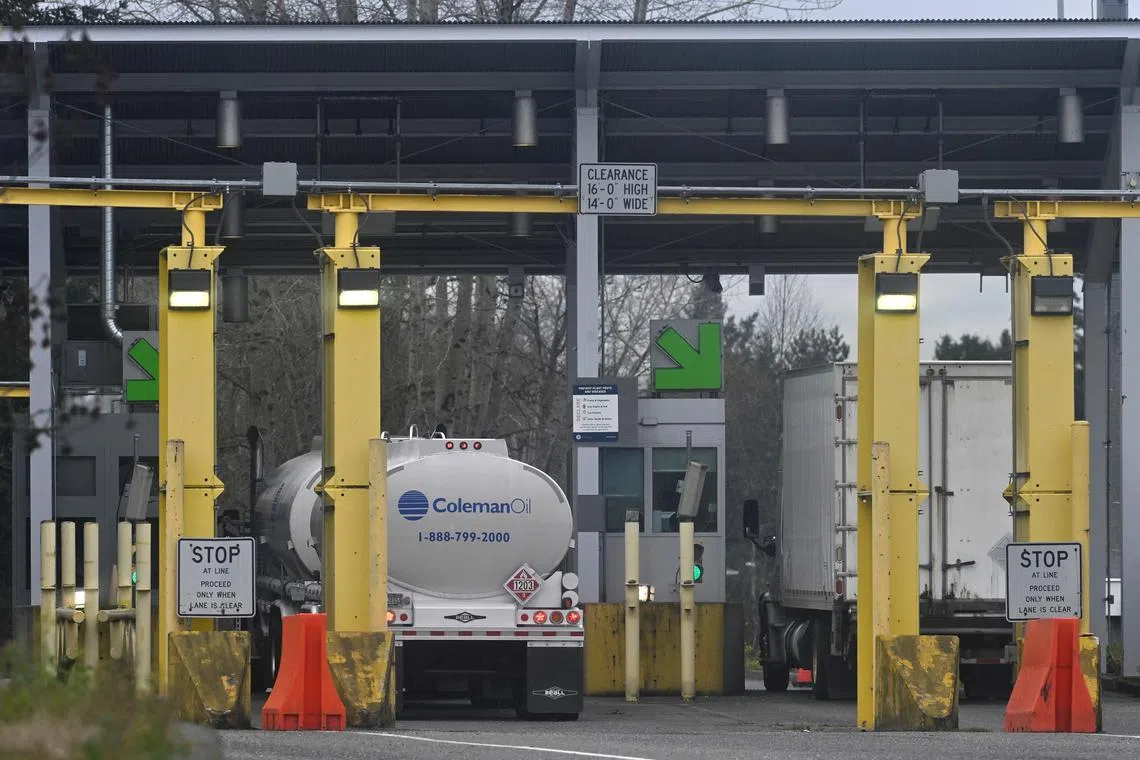Canada announces new border funding after Trump tariff threat
Sign up now: Get ST's newsletters delivered to your inbox

The Canadian government intended to introduce legislative amendments to grant Canada Border Services new authorities to inspect goods destined for export.
PHOTO: REUTERS
OTTAWA – Canada’s government on Dec 16 proposed C$1.3 billion (S$1.23 billion) for border security after US President-elect Donald Trump threatened tariffs unless Canada reduced the movement of migrants and drugs into the United States.
The border funding proposal was part of the mini-Budget, or fall economic statement unveiled on Dec 16.
Trump has threatened 25 per cent tariffs on all exports
The money would go towards Public Safety Canada, the Canada Border Services Agency, the Communications Security Establishment, and the Royal Canadian Mounted Police, the statement said.
The statement said the government intended to introduce legislative amendments to the Customs Act to grant Canada Border Services new authorities to inspect goods destined for export.
US border patrol apprehended more than 23,000 migrants near the Canada-US border in the 12 months ending in October – more than double the previous year.
That remains a fraction of the 1.5 million apprehended near the US-Mexico border in that time period.
The Canadian police say they have installed more cameras and sensors over this section of the border over the last four years.
Ottawa has previously promised to deploy more officers and technology targeting southbound border-crossers, though Canadian law enforcement officials acknowledge they are limited in what they can do to stop southbound migrants.
Last week, the province of Alberta announced a border patrol of its own, although very few migrants have crossed there. REUTERS


